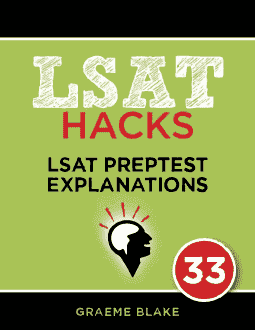QUESTION TEXT: Attacks on an opponent's character should be…
QUESTION TYPE: Principle – Strengthen
CONCLUSION: We should avoid attacking an opponent’s character during a debate.
REASONING: Character attacks don’t address the opponent’s argument. They just try to question the opponent’s moral right to be in the debate.
ANALYSIS: The right answer is sort of odd. It says we should avoid attacks that don’t address every argument. No attack addresses every argument. Most techniques only address a few arguments.
So technically, the right answer tells us to avoid all techniques of argument, including character attacks. It works, but it’s very broad.
I’d feel uncomfortable picking C if it weren’t for the fact that A, B and E all weaken the argument. D talks about our moral right to debate, which is irrelevant.
___________
- If that’s the case then we don’t have many options. Maybe we should attack the opponent’s character since we don’t have much else to say.
- The fact that such attacks “should not” impress viewers doesn’t mean that they won’t impress viewers. Maybe the attacks would be effective and we should use them…
- CORRECT. I sort of suspect this is a typo and they meant to write “attacks that do not address any argument.” Regardless, this is the best answer. A, B and E all weaken the argument and D is just irrelevant.
- So? The stimulus didn’t claim that our own moral rights needed preserving. It just pointed out that character attacks needlessly attack the moral rights of others.
- This tells us that we should attack our opponent’s character. We’re trying to conclude the opposite.

Free Logical Reasoning lesson
Get a free sample of the Logical Reasoning Mastery Seminar. Learn tips for solving LR questions


The word ‘every’ threw me off here too. I usually use those strong statements as a red flag, but process of elimination made that the only possible answer
I agree. Very odd correct AC.
I’ve come around to it. An overbroad principle is definitely still supportive. For example suppose you say “I could clean my room, but it wouldn’t fix my health problems”. If C said “actions that do not solve every problem should be avoided” it would be right.
It’s certainly true that attacking an opponent’s character does not solve every problem, so it works in this case.
Note: This is an old comment but I wanted to clarify the point.